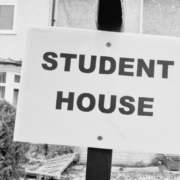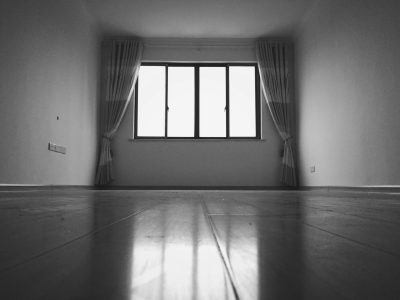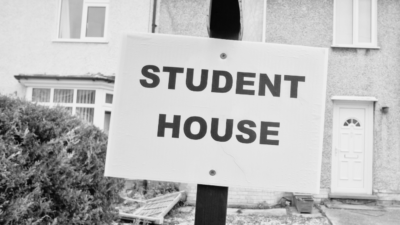The downturn in the housing market is continuing, roughly as expected, a slowish puncture rather than a blowout, with prices and activity softening, and quite a big drop in mortgage approvals partly reflecting last autumn’s mortgage rate shock.
But how are landlords responding to this downturn?
Are they throwing in the towel or sensing an opportunity, as in recent downturns, to buy?
By coincidence I recently came across some detail analysis on this subject from CIL, the management consultants.
I have spoken at their annual economic seminar for a number of years, so know them well.
CIL looked at, among other things, the buy-to-let market.
Of the roughly 5.1 million private let residential properties in the UK, just over 70% are on mortgages, the rest debt-free.
Of those on mortgages most, 53% of the total, or three-quarters of the mortgaged stock, are interest-only.
CIL looked at the vulnerability of this private rental stock to rising mortgage rates.
At a 2% mortgage rate, some 100,000 suffer from negative cash flow – rents being insufficient to cover mortgage payments – rising to 400,000 at 4% mortgage rates, and a very hefty 900,000 at 6% mortgage rates.
This leaves landlords with a range of options, including raising rents, accepting lower profitability or negative cash flow, refinancing, or selling some or all of their properties.
This will be a familiar thought process to many people reading this.
Some will hang on for the capital gains later, though softening property prices make this less of a certainty than it once appeared to be.
In anticipation of higher mortgage rates, though ahead of the events of last autumn, when they shot much higher in response to the Truss-Kwarteng September 23 mini budget, CIL carried out a survey of landlords and found that 19% were planning to sell.
After a scary few months that appears to be happening, though the precise scale remains uncertain.
The latest RICS (Royal Institution of Chartered Surveyors) residential market survey, for January, was very downbeat, with a net balance of 47% of surveyors reporting falling house prices, and the balance for new buyer enquiries negative for the ninth successive month, this time by a hefty 47% also.
Dotted through the survey were reports of landlords selling up, with Albright Surveyors in Wandsworth, London, saying:
“Smaller landlords are selling up due to rising interest rates and tax increases.”
Across in Bromley, Jonathan Price of Southside Property Management Services, said:
“The government’s continued demonisation of private landlords will come back to haunt them, we are already seeing long-term landlords exiting with very few new entrants.”
This is not a new phenomenon, of course, but it appears to be gaining momentum.
Robert Oulsnam & Co in Birmingham found that “the principal cause” or rising rents was “landlords selling the property when they become vacant rather than renting it out again”.
Dotted across the Midlands, and indeed elsewhere in the country, were reports of “persecuted” landlords selling.
Many, “perturbed” by regulatory reform as well as higher mortgage rates, are “reconsidering their position” according to Franklin Gallimore of Tenbury Wells.
The position is even worse in Scotland, where rent controls have added to the list of disincentives for landlords, as they were always likely to do.
According to Grant Robertson of Allied Surveyors:
“The modest reduction in the draconian measures brought in by the Scottish Gov allowing landlords to raise rents by 3% has done nothing to encourage new landlords into the market nor slow those exiting.
Surely we can now see these polices for what they are – to remove the PRS (private rented sector) from the market!”
In Wales meanwhile, Paul Lucas of Haverfordwest, said:
“Government regulations and influence have severely limited the rental supply which is now outstripped by demand, resulting in higher rents.”
These reflections from agents and surveyors are too widespread to be ignored.
On the face of it, rising rents are a boon for landlords, but when one cause of those rising rents is a drop in the number of properties available to rent, it suggests that things are far from healthy.
It is not just higher mortgage rates.
Many smaller landlords feel that they have been under attack for years.
For some, tougher energy efficiency requirements, which are fast coming down the road, are the final straw.
For others, it is other factors.
There has, to be fair, been better news on mortgage rates in recent weeks, with interest rates expectations coming down and the gilt market settling.
Once landlords have made their mind up that it is time to sell, and that they have had enough of the red tape and cost, it is hard for them to change.
























I’d like to know what other landlords are experiencing.
I fear the worst is yet to come, and it will come when more and more landlords have their rates up for renewal. Example of one such client, rough figures ;
Value 750k, loan 360, Rent 1900pm, current rate 1.75 paying 575pm
gross profit 1300 nett (20% £380 tax) 920 is ok, it supplements his pension.
New rate circa 5.4% £1620 gross profit 280 minus £380 tax leaves minus £100 per month.
So he is now down £1020 per month ! £1020 per month worse off !
There are 1000’s of these cases coming up over the next 12 months – what is going to happen to them.
The only way to buy a BTL now is Cash !
If you can afford a 50% deposit it still doesn’t (very rarely) work !
What is the government’s advice on this? I assume they did their research.